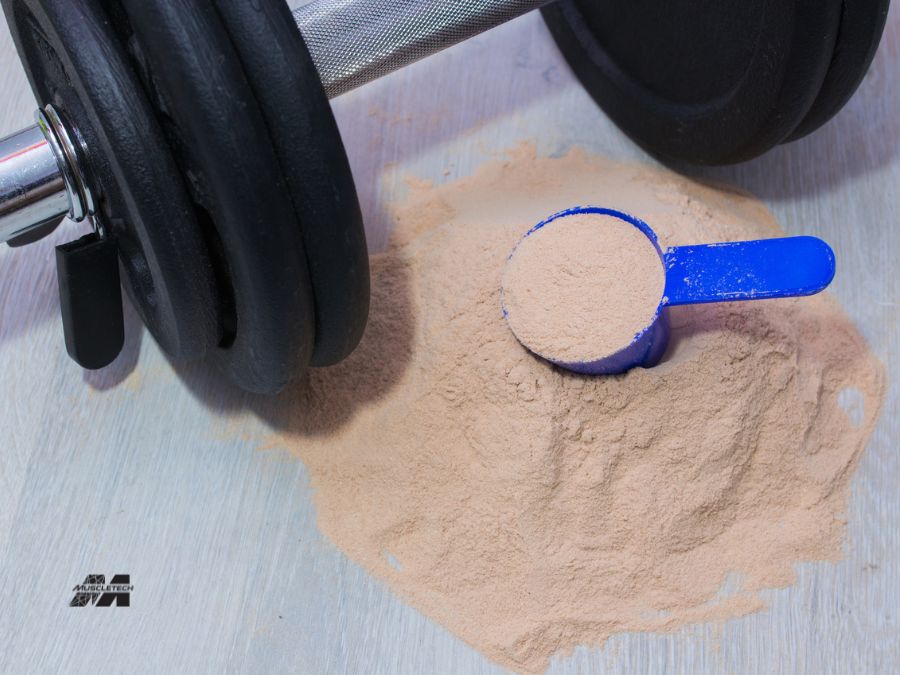Timing your supplements can make a big difference if you are trying to optimize your performance, aesthetics, and recovery.
L-Carnite is a popular supplement because of its health and fitness benefits.
If you are wondering how it works, whether you should take it, and when you should take it, then you are in the right place.
L-carnitine is primarily involved in your body's energy metabolism. (1)
It helps burn fatty acids by transporting them into your cells’ mitochondria, the location of aerobic respiration.
This is a key process if you want to enhance your exercise performance or your body's efficiency in utilizing its fat stores.
This article will review the best practices for when to take L-carnitine to maximize its effectiveness.
By the end of this article, you’ll have everything you need to start supplementing with L-carnitine effectively based on the most up-to-date research.
Table of contents
What is L-Carnitine?
L-carnitine is a naturally occurring substance in the body and plays a role in energy production.
It is created in the body via the liver and kidneys from two amino acids, lysine and methionine. (1)
In addition to this natural synthetization of L-carnitine, you can also get it from dietary sources such as red meat and dairy products.
In addition to energy production, L-carnitine plays a role in removing waste products from your cells, functioning as an antioxidant, and posesses neuroprotective effects.
All of these make it a key player in your performance when energy demands are high and metabolic waste products are present after exercise.
Forms of L-Carnitine
There are various forms of L-carnitine that you may find when supplementing.
Each of these has unique properties.
L-Carnitine L-Tartrate (LCLT): Commonly used in sports supplements due to fast absorption and potential benefits for recovery and muscle soreness.
Acetyl-L-Carnitine (ALCAR): Commonly used for cognitive health and mental clarity due to its ability to cross the blood-brain barrier and facilitate neuroprotective properties.
Propionyl-L-Carnitine: Commonly used for cardiovascular health due to support for blood flow and nitric oxide production.
Plain L-Carnitine: For general supplementation to facilitate energy and fat metabolism.
By understanding the different variations of L-carnitine and their use cases you can make an informed decision regarding which may best suit your goals.
Who Benefits From L-Carnitine Supplementation?
L-carnitine supplementation isn't just for athletes or fitness enthusiasts; it can benefit a wide range of individuals depending on your lifestyle and goals.
Below are some common goals that L-carnitine supplementation might help with:
1. Better Physique
L-carnitine can help facilitate progress by improving how your body utilizes fat for energy production.
Through a combination of exercise, diet, and lifestyle L-carnitine may help give you an edge in getting a better physique. (1)
Additionally, with L-carnitine supplementation, you can sustain aerobic exercise for longer durations. (2)
This may ultimately lead to a reduction in weight through increased calories burned during exercise.
2. Athletes' Performance
L-carnitine can also help athletes and those who train consistently to reduce muscle soreness and decrease recovery times. (3)
Its role in aerobic energy production can also help you sustain endurance activities for longer during workouts or competitions.
Studies involving supplementation prior to training and post-training have shown positive effects on performance.
These range from delayed discomfort with high-intensity exercise and sparring of glycogen during moderate-intensity exercise due to increased fatty acid metabolism. (4)
3. Cognitive and Physical Health
Acetyl-L-carnitine can offer long-term brain health benefits because of its neuroprotective effects.
Supplementation with this form of L-carnitine has been linked to improved memory, focus, and age-related cognitive decline. (2)
L-carnitine can also help older adults who experience fatigue increase their physical energy and vitality with consistent intake.
Whether your goals include performance, weight management, mental clarity, or a combination of all three L-Carnitne can support your body's needs to reach them faster.
4. Antioxidant Properties
L-carnitine also acts as a powerful antioxidant in your body. (2)
It helps to neutralize free radicals in your body that can cause oxidative stress which is harmful to cells.
L-carnitine plays a role in scavenging these free radicals and supports cellular health. This is particularly important during intense exercise.
The antioxidant action of L-carnitine helps to reduce muscle damage and inflammation aiding in recovery.
Ultimately allowing your body to repair and regenerate itself more effectively after physical stress.
Considerations For Vegetarians
For those who choose not to consume animal products such as red meat or dairy products, low levels of L-carnitine may be a concern.
As mentioned above, L-carnitine is synthesized from the amino acids, lysine and methionine.
Both of which are considered essential amino acids.
This means that they both cannot be made within the body and must be consumed in the diet.
Although they can be found in foods such as lentils, beans, nuts, seeds, and whole grains, they in general will be less than in animal products.
Thus supplementation with L-carnitine can be very beneficial for vegetarians.
When Should You Take L-Carnitine?
Pre-Workout
If you fall into the category of performance enhancement goals you may want to consider taking L-carnitine prior to training or competition to maximize fat oxidation.
Intake of L-carnitine 60-90 minutes before exercise will allow your body to digest the supplement and benefit from improved energy production when you need it. (4)
For pre-workout supplementation, L-carnitine L-Titrate may be your best option due to its fast absorption.
Research suggests that this form can help enhance fat metabolism with aerobic activities.
When L-carnitine is ingested before exercise it has also been shown to delay fatigue via increased nitric oxide production and delay discomfort.
Both of which are crucial for exercise performance.
Post-Workout
Once your training or competition ends your body and muscles enter recovery mode.
This is where post-workout L-carnitine supplementation can be effective if your primary objective is recovering from training.
If you have a high training load or if you are older and can’t seem to bounce back from your workouts like you used to this strategy may be for you.
Research has shown that post-workout L-carnitine supplementation can reduce muscle soreness and reduce markers of muscle damage when taken post-workout. (3)
This translates into feeling better walking into the gym day to day and getting higher quality workouts.
Ultimately leading to more gains over time.
If you choose to take our L-carnitine post-workout, you can pair it with a meal or in a recovery shake.
Ideally, this shake would include protein, carbohydrates, your L-carnitine, and any other recovery supplements you are taking.
The ingestion of fast-digesting carbohydrates will facilitate an insulin spike and can maximize the transport of L-carnitine to your muscle cells. Amplifying the benefits of your recovery.
Morning
An insulin spike from carbohydrates may improve the transport of L-carnitine to the muscles. But, some studies suggest taking it with other amino acids may create competition for absorption. (4)
In this case, If you want to maximize the effectiveness of your L-carnitine supplementation taking it in the morning on an empty stomach could be your best bet.
When you wake up in the morning you have essentially gone through a 6-8 hour fast.
Thus anything you consume immediately after waking will have little competition for absorption into the body.
Therefore if you want L-carnitine absorption to be emphasized and avoid competition with other nutrients try taking it on an empty stomach. (4)
Additionally, as your body gets moving in the morning in a fasted state where fat utilization is high, adding L-carnitine may help facilitate more efficient energy production.
A morning supplementation strategy could be optimal if you have a morning cardio routine or want to boost alertness.
With Meals
Although supplementing with L-carnitine with other food sources may create competition for absorption there are other beneficial effects combining them may have.
For example, if you do not tolerate taking L-carnitine on an empty stomach well then consuming it with food can help with consistency.
However, it has also been shown that consuming L-carnitine with food, specifically carbohydrates facilitates glycogen sparring during exercise.
The sparring of muscle glycogen occurs as a result of increased fat oxidation. (1)
This means that the use of the storage form of carbohydrates is either not used or is delayed in being used as you exercise.
Ultimately allowing you to exercise for longer periods compared to if you only ingested carbohydrates pre-workout.
How to Optimize L-Carnitine Use?
Recommended Dosages
The benefits of supplementing with L-carnitine don’t mean much if you are not taking enough to see a meaningful response.
Based on your goals the amount of L-Carnitine you should consume can change.
According the recent research, here are some goal-specific guidelines:
For exercise performance effects: 3-4 grams pre-workout or 2-2.74 grams daily
For antioxidant effects: 2g per day
For general supplementation of L-carnitine, it seems that intakes up to 3 grams per day would yield positive benefits for most people.
Who Should Avoid L-Carnitine Supplementation?
L-carnitine supplementation is generally safe and does not appear to have an upper limit of consumption per day. (1)
However, consult with their healthcare provider prior to doing so.
If you take certain medications, L-carnitine may also interact negatively with them.
Wrapping Up on L-Carnitine Timing
L-carnitine can be a powerful addition to your supplement stack.
However, understanding when to take the supplement can be the key to unlocking its potential and helping you reach your fitness goals.
Whether you have performance-based goals, want to shred body fat levels, or incorporate it into your diet to optimize your health and fight the negative effects of aging it can help you.
If you want to harness its performance-boosting effects, opt for consumption just before your training.
For better recovery and reduced muscle damage post-exercise take it in your post-workout shake or meal.
Lastly, if you want to maximize its absorption then choose to take it on an empty stomach or take it with carbohydrates to improve your long-distance endurance performance.
Everyone's needs are different when it comes to L-carnitine supplementation.
The strategy that is best for you requires an individualized approach for the best results.
Use this article as a guide to L-carnitine supplementation and always consult with your healthcare professional if you are unsure what's best for you!
FAQs on L-Carnitine
Can I Take L-Carnitine at Night?
You can take L-carnitine at night as long as it fits with your goals.
Taking it at night with carbohydrates may improve endurance performance, help reduce muscle damage post-workout, and help avoid an upset stomach.
But, if you find that L-carnitine causes stimulation due to its role in energy production it could affect sleep quality.
If your primary object is fat loss or immediate performance enhancement you may be better off taking it in the morning or prior to training.
What’s the Best Form of L-carnitine for Beginners?
Whether you are a beginner in training or with L-carnitine doesn’t necessarily matter since certain forms of L-carnitine lend themselves to different goals.
If your goals are related to improving exercise performance and recovery you may want to utilize L-carnitine L-tartrate.
It is well-tolerated and its benefits are supported in the research.
Whereas if you’re focused on the cognitive benefits of L-carnitine, opt for acetyl-L-carnitine.
It crosses the blood-brain barrier and supports mental clarity and focus.
How Soon Can I See Results from Supplementation?
The timeframe to which you see results depends on your supplementation strategy and the goals you have.
For instance, there are studies to support a relatively immediate increase in exercise performance by taking 3-4g of L-carnitine 60-90 minutes before high-intensity exercise.
Similarly, studies focusing on lower intakes and their effect on training recovery showed results over six months.
Based on the guidelines listed above it is reasonable to expect to see results from general supplementation between 3-8 weeks. (2)
References:
Office of Dietary Supplements. (n.d.). Carnitine: Fact sheet for health professionals. National Institutes of Health. https://ods.od.nih.gov/factsheets/Carnitine-HealthProfessional/
Fielding, R., Riede, L., Lugo, J. P., & Bellamine, A. (2018). l-Carnitine Supplementation in Recovery after Exercise. Nutrients, 10(3), 349. https://doi.org/10.3390/nu10030349
Fielding, R., Riede, L., Lugo, J. P., & Bellamine, A. (2018). l-Carnitine Supplementation in Recovery after Exercise. Nutrients, 10(3), 349. https://doi.org/10.3390/nu10030349
Taylor P. M. (2001). Absorbing competition for carnitine. The Journal of physiology, 532(Pt 2), 283. https://doi.org/10.1111/j.1469-7793.2001.0283f.x
Mielgo-Ayuso, J., Pietrantonio, L., Viribay, A., Calleja-González, J., González-Bernal, J., & Fernández-Lázaro, D. (2021). Effect of Acute and Chronic Oral l-Carnitine Supplementation on Exercise Performance Based on the Exercise Intensity: A Systematic Review. Nutrients, 13(12), 4359. https://doi.org/10.3390/nu13124359








